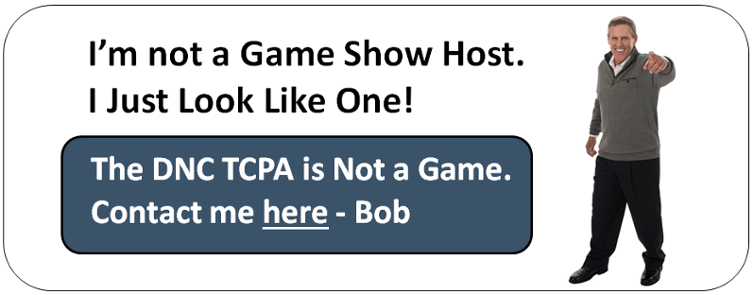
If you're selling products to larger companies like accounting & payroll programs, time tracking, work budget estimates, security software and other custom high ticket items - you'll want to reach out via phone aggressively. You don't have an interest in cells particularly, as they can be more problematic from a call compliance standpoint. But you are subject to the Telephone Consumer Protection Act. Here are some basic protection steps to help keep you out of court, without losing alot of callable numbers.
Typically, many Business to Business TCPA altercations involve loan or software sale solicitations to small and medium sized businesses.
Compliance problems can arise when calling hybrid or dual purpose cell lines: The company website advertises pizzas, and you're calling for financial services. It's a potential call violation because you're not calling about their services. You're calling about your services.
But what if you're only looking to solicit larger business landlines. You're exempt from Do-Not-Call and TCPA as a B2B entity, right? - Well, not so fast.
Alot depends on your method of calling. According to top TCPA Defense Attorney Eric Allen, of Allen, Mitchell & Allen, PLLC about half of all states have a local robocall ban that has no clear b2b exemption. Washington State and Indiana are the worst. But others could give you a hard time if they wanted.
Even if you're calling by hand from purchased opt-in lists - they can be littered with problematic cells.
Records sourced from Linked-In, Twitter and Facebook are showing up with more and more wireless numbers, even for the larger players. Somehow data providers have cracked the code on this previously unavailable information. These cell numbers are subject to the more stringent TCPA interpretations since the laws changed on October 16'th, 2013, making all cell numbers consumer agnostic. So you're not allowed to use any auto-dialing equipment - but virtually 100% of B2B's do, making them vulnerable.
Cells are more apt to complain.
And complaints are what the FTC, FCC, State AG's, CFPB and predatory attorneys look for. Cell owners don't expect any unsolicited calls at this point. You're violating their window to the world!
Some individuals will try to bait you.
Filling out your web forms. Looking for incorrect compliance language or time of day callbacks.
Make sure your leads have proper compliance language. Most do not.
We were shocked recently when a major bank, after a $75 million fine for compliance related altercations, failed to have required compliance language on their website mortgage lead forms. Language like: "This gives us permission to call you via
5 ways B2B's can help protect themselves from TCPA.
The term "scrubbing" means to identify numbers you don't want to call:
-
National Do Not Call List Scrubbing.
-
Scrubbing against the 14 State
Do Not Call Lists. -
Cell Phone Scrubbing.
-
Litigator Scrub.
-
Scrub against a Wireless Portability List for cells switched from landline to wireless.
More: In signing up as an exempt entity with the National Do-Not-Call List, saving the $17,000 B2C's pay, you won't get much number fallout - as most giant companies don't put their landlines on a call prohibition list. Litigator Scrub can help eliminate the 120,000 people that have filed court cases involving the TCPA. These are the folks causing
Why are these compliance steps important for B2B's today?
TCPA prosecuting
As a company calling the larger players, you need to be proactive with these laws. By taking these few simple steps today, you can help save some potentially major compliance grief down the road.
For more information on protecting your business when calling big companies, call my personal line at 561-317-3001 or email me here - Bob
Related Articles:
- [Video] How Business to Business Callers can follow FCC and TCPA Rules.
- B2B Companies find Litigator Scrub top TCPA Compliance Solution.
-
I only call other Businesses (B2B) - So I am Exempt from Cell Phone Compliance, Right?
-
Why B2B marketers must scrub cells now for TCPA Law Compliance







